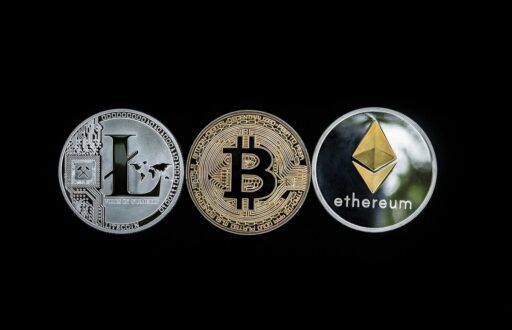The trajectory of cryptocurrency exchanges suggests a bright future, not just for digital currencies but for global finance at large. As technology evolves, so too will how we trade, invest and manage money. The integration of blockchain technology into various sectors, the rise of decentralized finance (DeFi), and the potential for more streamlined, secure financial transactions point to a world where digital currency exchanges play a central role in our economic systems.
Key Takeaways
- Cryptocurrency exchanges are transitioning from centralized models to decentralized and hybrid systems, enhancing security and user autonomy.
- Digital currencies are increasingly becoming tools for financial inclusion, breaking down barriers and adapting to diverse global markets.
- There is a growing integration between crypto exchanges and traditional financial institutions, signaling a convergence of fintech and crypto technologies.
- Advancements in user experience and security, including AI and non-custodial platforms, are making crypto trading more accessible and safe.
- The future of digital currency exchanges is tied to market trends, tokenization, and sustainable growth, reshaping the landscape of global finance.
The Evolution of Crypto Exchanges and How They Operate


From Centralized to Decentralized: The Shift in Exchange Paradigms
The transition from centralized to decentralized exchanges marks a pivotal change in the crypto landscape. Decentralized exchanges (DEXs) have emerged as a response to the security vulnerabilities of their centralized counterparts. Operating on blockchain networks, DEXs facilitate peer-to-peer trading, eliminating the need for intermediaries and central authorities.
The shift towards DEXs is part of a broader movement towards digitalization within the financial sector. This transformation has not only increased the speed and efficiency of transactions but has also broadened the spectrum of accessible assets for traders.
Despite the advantages, the move to decentralized systems is not without its challenges. Hybrid exchanges attempt to bridge the gap but face their own set of issues:
- Trust in the centralized component is still required.
- Increased complexity in usage compared to pure CEXs or DEXs.
- Regulatory compliance becomes more intricate.
The Federal Reserve Board’s study emphasizes the importance of adaptive regulatory frameworks for decentralized exchanges, focusing on DeFi, smart contracts, and cross-chain interoperability in trading.
The Rise of Non-Custodial Trading Platforms
The advent of non-custodial trading platforms marks a significant shift in the digital currency landscape. Users now have the autonomy to trade without relinquishing control of their private keys, ensuring that their assets remain secure and under their direct management. This model mitigates the risks associated with centralized exchanges, where the aggregation of funds has historically been a magnet for hackers.
The move towards non-custodial platforms is not just a trend; it’s a response to the demand for greater security and transparency in the crypto space.
The benefits of non-custodial exchanges extend beyond security. They also offer:
- Privacy: Transactions are executed without the need for personal information, preserving user anonymity.
- Accessibility: There’s no need for an intermediary, making it easier for anyone with internet access to participate.
- Innovation: These platforms are at the forefront of integrating new technologies like NFT markets.
While the future of crypto exchanges is still unfolding, the rise of non-custodial platforms is a clear indicator of the industry’s direction towards empowering users and enhancing security.
Hybrid Models: Bridging the Gap Between Centralized and Decentralized
Hybrid cryptocurrency exchanges, or hybrid exchanges, are emerging as a solution that merges the strengths of both centralized (CEXs) and decentralized exchanges (DEXs). They aim to offer the security and user control of DEXs with the liquidity and user-friendliness of CEXs. Hybrid exchanges typically feature order books from CEXs and utilize smart contracts for custody and settlement, striving to provide a more secure and flexible trading environment.
Hybrid exchanges represent a significant step in the evolution of crypto trading platforms, addressing some of the challenges faced by purely centralized or decentralized systems.
However, these platforms are not without their challenges. Users may still need to place a degree of trust in the centralized components, and the complexity of operating within a hybrid system can be daunting for some. Additionally, navigating regulatory compliance can be more intricate due to the blend of centralized and decentralized elements.
Advantages of Hybrid Exchanges:
- Enhanced security through decentralized custody
- Centralized order books for better liquidity
- Direct wallet trading, giving users control over their funds
- Increased privacy with less stringent verification processes
Disadvantages of Hybrid Exchanges:
- Partial reliance on centralized systems
- Higher complexity and learning curve
- Potential regulatory hurdles
Global Expansion and Inclusion in Digital Currency


Breaking Down Barriers: Crypto as a Tool for Financial Inclusion
The advent of digital currencies has heralded a new era in financial inclusion, offering unprecedented access to financial services for those previously marginalized by traditional banking systems. Cryptocurrency exchanges are pivotal in this transformation, reducing entry barriers and fostering a more inclusive financial landscape.
- Blockchain technology enhances financial inclusion and accessibility.
- Exchanges lower entry barriers, promoting a more inclusive ecosystem.
- Success stories from the crypto space inspire broader participation.
The intersection of technology and finance through cryptocurrencies is not just reshaping how we think about money, but also who can participate in this evolving digital economy.
As the crypto industry continues to expand, the role of exchanges in facilitating global inclusion becomes increasingly significant. The potential for a financial system built on blockchain-based tokens offers advantages over centralized models, emphasizing trust in code and decentralized ledgers.
Localized Solutions: Catering to Diverse Markets
The digital currency landscape is rapidly evolving, and with it, the need for localized solutions that cater to diverse markets becomes increasingly important. Crypto localization is not just about translating content; it’s about adapting products and services to meet the cultural and regulatory requirements of each region. This includes not only language translation but also currency conversion, payment methods, and understanding local market dynamics.
- Translation and cultural adaptation to ensure relevance and accessibility
- Currency conversion and local payment integration for seamless transactions
- Regulatory compliance tailored to each jurisdiction
- Market-specific features and support to address local needs
By focusing on localized solutions, crypto exchanges can bridge the gap between global technology and local usage, fostering a more inclusive financial ecosystem.
As the industry continues to grow, exchanges that prioritize localization will likely see increased adoption in underserved markets, contributing to the global expansion and inclusion in digital currency.
Educational Initiatives and Simplifying Onboarding
The digital currency landscape is rapidly evolving, and with it, the need for comprehensive educational initiatives to empower users. These initiatives are crucial for simplifying the onboarding process, making it easier for newcomers to navigate the complexities of crypto exchanges.
The journey from crypto novice to savvy user is fraught with challenges. Educational resources play a pivotal role in demystifying digital currencies and fostering a more inclusive ecosystem.
To address this, various platforms have introduced a range of learning tools and community support features:
- Interactive tutorials and webinars
- Glossaries of key crypto terms
- Community forums for peer-to-peer learning
- Support centers with detailed FAQs
One notable example is the Tether Edu initiative, which underscores Tether’s role in global digital education and empowerment. This program is designed to enhance digital skills across the globe, reinforcing Tether’s leadership in the crypto space.
Deeper Integration with Traditional Finance


Collaborations with Traditional Banks and Financial Institutions
The Integration of traditional banking with crypto finance is shaping a robust financial ecosystem. This synergy is not only enhancing the credibility of digital currencies but also expanding the services offered to consumers. Traditional financial institutions are now exploring the use of blockchain technology to streamline operations and reduce costs.
Ethereum’s smart contracts revolutionize trust and automation in finance, offering new opportunities and efficiencies.
Collaborations have led to the development of innovative products that leverage the strengths of both sectors. For instance, banks are now offering crypto-related services such as custody solutions, while crypto platforms are providing fiat on-ramps, making it easier for users to transition between traditional and digital currencies.
The following list outlines some of the key benefits of these collaborations:
- Enhanced security and trust for users
- Greater financial inclusion
- Streamlined compliance and regulatory processes
- Diversification of financial products and services
Regulatory Frameworks and Compliance Challenges
The intersection of digital currencies with traditional regulatory frameworks presents a complex challenge. Governments and financial institutions are striving to balance innovation with consumer protection and the prevention of illicit activities. As the regulatory landscape becomes clearer, it could either enhance Bitcoin’s legitimacy and foster adoption or introduce hurdles that inhibit its growth.
Regulatory approaches to cryptocurrencies are evolving, with some authorities signaling that they should be regulated similarly to securities. This perspective, however, faces opposition from various industry stakeholders who argue that the unique nature of cryptocurrencies requires a distinct set of rules.
The key to successful regulation will be finding a middle ground that accommodates the distinct attributes of digital currencies while ensuring robust consumer protection and market integrity.
Here’s a snapshot of the global regulatory stance on cryptocurrencies:
- United States: SEC calls for greater oversight; potential for more defined securities laws.
- European Union: Embracing regulation that fosters innovation while mitigating risks.
- Asia: Mixed approaches, with some countries banning while others integrate crypto into their financial systems.
- Global: Efforts towards interoperability of sovereign Central Bank Digital Currencies (CBDCs).
The regulatory framework will continue to be a pivotal factor in the future trajectory of digital currencies, with lawmakers worldwide working to resolve the complexities that this new asset class presents.
The Convergence of Fintech and Crypto Technologies
The fusion of financial services and technology has led to the emergence of innovative trading platforms that blend the best of both worlds. The integration of blockchain technology into traditional finance is not just a trend, but a transformative movement that is reshaping how we interact with money. This convergence has facilitated the creation of tools and services that are more secure, efficient, and accessible than ever before.
- Automated trading bots
- Advanced security protocols
- Real-time transaction processing
- Enhanced regulatory compliance
The seamless melding of fintech and crypto technologies promises a future where financial transactions are more transparent, swift, and inclusive. The potential for growth in this area is immense, with each advancement paving the way for a more interconnected and sophisticated financial ecosystem.
Advancements in User Experience and Security


Enhancing Security Measures to Combat Fraud and Hacks
In the arms race against cyber threats, cryptocurrency exchanges are fortifying their defenses with cutting-edge security measures. The implementation of hardware security modules, biometric authentication, and real-time monitoring are becoming standard practices to safeguard users’ assets. These advancements are crucial in an industry where the risks of fraud and hacks are ever-present.
- Hardware Security Modules (HSMs) provide robust encryption and key management.
- Biometric Authentication adds a layer of personal security that is difficult to replicate.
- Real-time Monitoring allows for the immediate detection of suspicious activities.
The synergy between advanced security technologies and proactive monitoring strategies is essential for creating a secure trading environment. This approach not only protects individual users but also maintains the integrity of the entire digital asset ecosystem.
As the landscape of digital currency continues to evolve, the need for enhanced security measures becomes more pronounced. Exchanges are responding by adopting a multi-layered security approach that addresses various attack vectors, from sophisticated phishing schemes to the exploitation of transaction ordering, such as Maximal Extractable Value (MEV) scripts.
User Interface Innovations for Simplified Trading
The relentless pace of innovation in the crypto exchange sector has led to significant improvements in user interfaces, making trading more accessible and intuitive. Automated Market Makers (AMMs) have revolutionized the way users engage with exchanges, eliminating the need for traditional order books and simplifying the trading process.
Key features such as real-time data visualization, streamlined navigation, and one-click trading functionalities are now standard, catering to both novice and experienced traders. The focus on user experience is evident in the design of contemporary platforms, which prioritize ease of use without compromising on functionality.
- Real-time data visualization
- Streamlined navigation
- One-click trading
The goal is to lower the entry barrier for new participants and enhance the trading experience for all users, ultimately contributing to the growth of the digital currency ecosystem.
The Role of Artificial Intelligence in Improving User Experience
Artificial Intelligence (AI) is revolutionizing the way digital currency exchanges operate, offering a more intuitive and efficient user experience. AI-driven analytics are crucial in understanding user behavior, enabling exchanges to tailor their services to individual needs. This personalization extends to the realm of customer support, where AI chatbots provide instant assistance, reducing wait times and improving satisfaction.
The integration of AI into exchanges also enhances security. Sophisticated algorithms can detect and prevent fraudulent activities, ensuring a safer trading environment. Moreover, AI contributes to the scalability and performance of exchanges, handling large volumes of transactions without compromising speed.
To fully benefit from these advancements, users should:
- Choose exchanges with strong security measures.
- Look for low fees and a diverse range of cryptocurrencies.
- Consider the user interface, customer support, scalability, and performance for an optimal trading experience.
The convergence of AI with digital currency exchanges is not just a trend; it’s a strategic evolution that is setting new standards in user experience and operational efficiency.
Looking Beyond the Horizon: The Future of Exchanges and Finance
Predicting Market Trends and the Role of Crypto Exchanges
As the crypto industry continues to mature, the role of exchanges in predicting market trends becomes increasingly significant. Crypto exchanges are not just platforms for trading; they are also barometers of the market sentiment and potential trendsetters.
- Market Sentiment Analysis: Exchanges provide valuable data that can be used to gauge the mood of the market.
- Innovation Adoption: They are often the first to adopt new cryptocurrencies and technologies, influencing which ones gain traction.
- Investor Education: By offering educational resources, exchanges can shape the strategies and decisions of investors.
The ability of crypto exchanges to adapt and innovate will be crucial in steering the market towards new horizons. Their influence extends beyond mere trading, impacting the very fabric of the digital currency ecosystem.
The exploration of various aspects of cryptocurrency, including exchanges, DeFi, tokens, and Ethereum, is essential for anyone looking to understand the market dynamics. Beginner guides and Reddit user recommendations often highlight the importance of staying informed and agile in the ever-evolving crypto landscape.
The Potential Impact of Widespread Tokenization
The concept of widespread tokenization is not just a futuristic idea; it’s a burgeoning reality that promises to revolutionize asset management and ownership. Tokenization enables the conversion of rights to an asset into a digital token, thus simplifying transactions and enhancing liquidity. This process can apply to a myriad of assets, from real estate and art to commodities and beyond.
Tokenization offers unprecedented opportunities for innovation, investment, and intellectual exploration. It challenges traditional notions of asset ownership and exchange, paving the way for more democratic and accessible financial systems.
As tokenization gains traction, we can anticipate a significant shift in how assets are traded and managed. The table below outlines the potential benefits of tokenization:
| Benefit | Description |
|---|---|
| Liquidity | Easier conversion of assets into cash. |
| Accessibility | Broader participation in asset markets. |
| Efficiency | Streamlined processes and reduced costs. |
| Transparency | Clearer asset tracking and history. |
The impact of tokenization extends beyond the financial sector; it influences global conversations and sentiment, as real-world events rapidly translate into digital realm discussions. The value of tokenization transcends numbers; it embodies the interest in decentralized finance and the blockchain technology that supports it.
Sustainable Growth and the Long-Term Vision for Digital Currencies
The trajectory of digital currencies suggests a future where they are intricately woven into the fabric of global finance. Sustainable growth in the digital currency sector hinges on the balance between innovation and regulation. As we look towards a future where digital currencies are commonplace, several key factors emerge:
- The importance of educational initiatives to demystify the technology and encourage informed participation.
- The need for robust security measures to instill confidence in digital currency transactions.
- The potential for localized solutions to cater to the unique needs of diverse markets.
- The role of regulatory frameworks that both protect consumers and foster innovation.
The long-term vision for digital currencies is not just about maintaining the momentum of adoption, but also about ensuring that this new form of money can contribute positively to the world’s economic systems.
The conversation around digital currencies is no longer confined to niche communities or speculative investors. It has expanded to include a wide range of stakeholders, from central banks to educational institutions, all recognizing the transformative potential of this technology. As we navigate the complexities of integrating digital currencies with traditional financial systems, the focus must remain on creating a resilient and inclusive financial ecosystem.
Looking Beyond the Horizon: The Future of Exchanges and Finance
As we stand at the digital crossroads, the future of digital currency and decentralized crypto exchanges is not just promising but pivotal in reshaping global finance. The evolution of these platforms from mere marketplaces to integral components of the financial ecosystem underscores their growing influence. With advancements in user experience, deeper integration with traditional finance, and the widespread tokenization of assets, exchanges are poised to offer more inclusive, secure, and efficient services. The trajectory of digital currencies, bolstered by the innovation and resilience of crypto exchanges, heralds a new era where they are central to our economic systems, driving us towards a more interconnected and empowered financial future.
Frequently Asked Questions
How have cryptocurrency exchanges evolved over time?
Cryptocurrency exchanges have evolved from simple, centralized platforms to more complex systems, including decentralized exchanges (DEXs) and hybrid models. They have adapted to meet the demands of increased security, user control, and regulatory compliance.
What role do non-custodial trading platforms play in the crypto market?
Non-custodial trading platforms allow users to trade cryptocurrencies while retaining control of their private keys and funds, significantly reducing the risk of hacks and providing a higher level of security compared to traditional custodial exchanges.
How is crypto fostering financial inclusion and global expansion?
Crypto is breaking down financial barriers by providing access to digital currencies and financial services to unbanked and underbanked populations, thereby fostering global expansion and financial inclusion.
In what ways are crypto exchanges integrating with traditional finance?
Crypto exchanges are integrating with traditional finance through collaborations with banks, the development of regulatory compliant frameworks, and the convergence of fintech and crypto technologies to create seamless financial ecosystems.
What advancements in user experience can we expect from crypto exchanges?
Future advancements in user experience for crypto exchanges may include more intuitive interfaces, simplified onboarding processes, enhanced security measures, and the integration of artificial intelligence to improve overall user interaction.
What is the potential impact of widespread tokenization on the financial market?
Widespread tokenization could revolutionize the financial market by providing increased liquidity, enabling fractional ownership of assets, and facilitating the creation of new financial products and services, thereby impacting the role and functionality of crypto exchanges.






